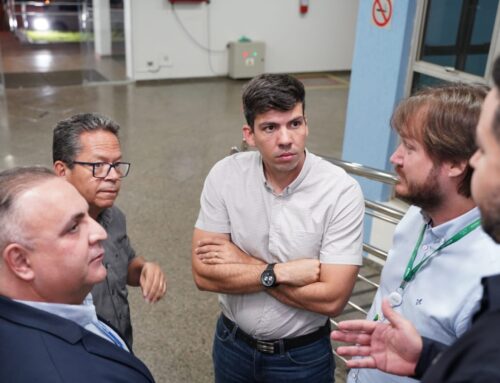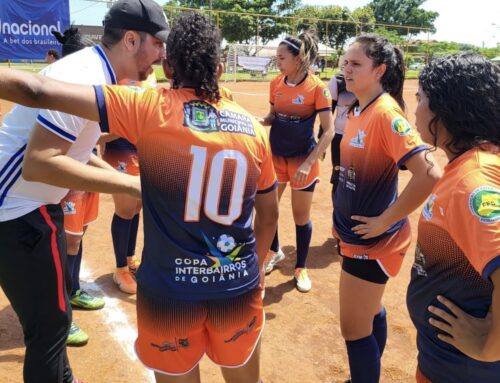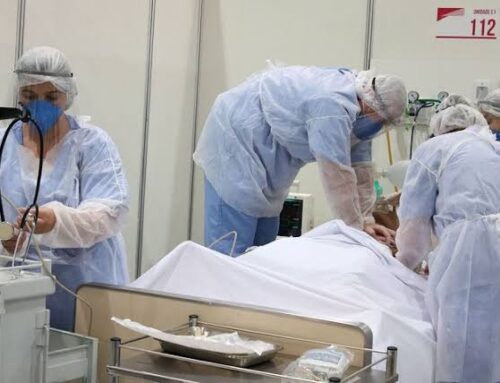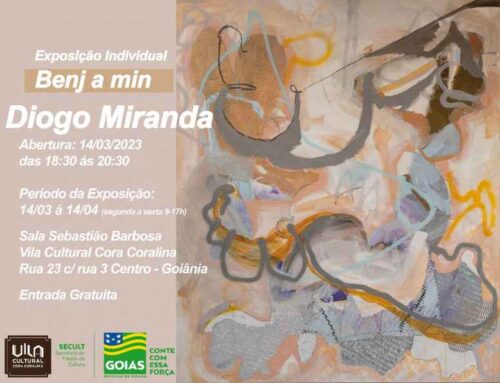paragraph (4) applies except in so far as it specifies the period of time for making an objection; the objection must be made before the end of 3 working days beginning with the first working day after the officer concerned has been given the notice referred to in paragraph (7); paragraphs (5) to (7) apply, with the exception of the requirement in paragraph (7) for the appropriate authority to give written notice of the effects of paragraphs (8) and (9). i made me confused? Police appeals tribunal has the same meaning as in section 85 of the 1996 Act. fall before the end of 5 working days beginning with the first working day after the day specified by the chair. (4)Where a date and time is specified under paragraph (3) and, (a)the officer concerned or the officers police friend will not be available, and. in submitting any information or by not submitting any information at all under regulation 54 (or, where paragraph 14 applies, regulation 18(1) or 31(2) or (3)) of these Regulations or under regulation 20 of the Complaints and Misconduct Regulations, a period of 2 years beginning with the day on which it was notified to the officer concerned, or. the complainant and any interested person, in any case to which regulation 60 applies. Paragraph 24(6) of Schedule 3 to the 2002 Act was substituted by section 127 of, and paragraphs 1, 3 and 14(1) and (6) of Schedule 23 to, the Criminal Justice and Immigration Act 2008 and was amended by section 95 of, and paragraphs 1 and 14(1) and (3) of Schedule 14 to, the Police Reform and Social Responsibility Act 2011 and section 16 of, and paragraphs 9, 27(1) and (2) and 47(h)(xiii) of Schedule 5 to, the Policing and Crime Act 2017. on receipt of any representations under paragraph (7); if there has been no previous review, before the end of 4 weeks beginning with the first working day after the suspension; when it becomes aware that circumstances relevant to the suspension conditions may have changed (whether by means of representations made under paragraph (7)(b) or otherwise), or. (9)Where the case is returned to the appropriate authority under paragraph (8)(b), the appropriate authority must proceed in accordance with Part 4, subject to regulation 23(1) being read as if the words Subject to regulation 49, on receipt of the investigators report under regulation 21(1), were omitted. (a)the seriousness of the alleged gross misconduct; (b)the impact of the allegation on public confidence in the police, and, (3)When assessing the seriousness of the alleged gross misconduct for the purposes of paragraph (2)(a), the matters which the Director General must take into account are. (ii)where the investigation has been completed, on request and subject to the harm test, a copy of the investigators report or such parts of that report as relate to the officer. Amendment of the Special Constables Regulations 1965 and the Police Barred List and Police Advisory List Regulations 2017, Modifications to these Regulations in their application to former officers, the following definitions were inserted in the appropriate places. 3.(1)Subject to paragraph (2), the following are revoked. in sub-paragraph (h), after 18(1), there were inserted , 20A(2). (ii)the investigation has been concluded. where the case is referred to a misconduct meeting, that meeting must be conducted by a person appointed by the appropriate authority in accordance with paragraph (3) who is not an interested party; where the case is referred to a misconduct hearing, that hearing must be conducted by a panel of three persons appointed in accordance with paragraph (4). (e)the conduct that is the subject matter of the case and how that conduct is alleged to amount to gross misconduct, as set out in the notice given in accordance with regulation 51(2). (3)A person given a notification under paragraph (1) may, within the period of 21 days beginning with the day on which the notice is given or such longer period as the Director General may agree with that person, provide a written statement and any document which the person wishes the Director General to take into account for the purposes of the Condition C special determination. (b)in submitting any information or by not submitting any information at all under regulation 54 (or, where paragraph 14 applies, regulation 18(1) or 31(2) or (3)) of these Regulations or under regulation 20 of the Complaints and Misconduct Regulations. 10.(1)Subject to the provisions of this regulation, proceedings under these Regulations must proceed without delay. (ii)any arguments on points of law they wish to be considered by the person or persons conducting the misconduct proceedings. (6)In paragraph (3)(c), vulnerable person means a person who, by reason of age, disability or ill-health, is, or may be, unable to. (2)Where the question of disciplinary action for gross misconduct is being considered, the person or persons considering it, (iii)the appropriate authority or the person appointed to represent such authority in accordance with regulation 8(5); and, an opportunity to make oral or written representations, and. (a)the duty specified in paragraph (1) to supply any lists of witnesses or notice lies with the Director General and not with the appropriate authority or the originating authority; (b)the duty specified in paragraph (6) to supply the specified documents to the person conducting or chairing the misconduct proceedings lies with the Director General and not with the appropriate authority or the originating authority; (c)paragraph (6)(c) must be read as if or the Director General were inserted after the originating authority, and. (b)terms of reference under paragraph (2); (c)a written notice under paragraph (4), or. (11)In making a decision under paragraph (10), the person chairing the misconduct hearing may have regard to any representations, (a)provided under regulation 36(3) or (5), or. where the misconduct meeting arose from the investigation of a conduct matter under Schedule 3 to the 2002 Act (handling of complaints and conduct matters etc. (b)where sub-paragraph (a) does not apply, may direct that the case be withdrawn. (b)in submitting any information or by not submitting any information at all under regulation 18(1) or 31(2) or (3) (or, where paragraph (13) applies, regulation 54) of these Regulations or under regulation 20 of the Complaints and Misconduct Regulations. (9)Where the person representing the officer concerned is a relevant lawyer, the police friend of the officer may also confer with the officer in the circumstances mentioned in paragraph (8)(b). Question about getting a warning VS a ticket - Police Forums & Law Police officers behave in a manner which does not discredit the police service or undermine public confidence in it, whether on or off duty. (2)The investigator must, as part of the investigation, consider any such statement or document and must make a record of having received it. Regulation 22 is to be read as if conducting or were omitted. (a)paragraph (4) applies except in so far as it specifies the period of time for making an objection; (b)the objection must be made before the end of 3 working days beginning with the first working day after the officer concerned has been given the notice referred to in paragraph (7); (c)paragraphs (5) to (7) apply, with the exception of the requirement in paragraph (7) for the appropriate authority to give written notice of the effects of paragraphs (8) and (9). (4)Where cases are referred to joint misconduct proceedings, the officer concerned in any of the cases may object and request separate proceedings. (a)where the officer concerned is a member of a police force, must be either another member of a police force of at least one rank higher than the officer or, unless the case substantially involves operational policing matters, a police staff member who, in the opinion of the appropriate authority, is more senior than the officer concerned; (b)where the officer concerned is a special constable, must be. after sub-paragraph (d), and were omitted; in sub-paragraph (e), for misconduct or gross misconduct, as the case may be, there were substituted gross misconduct; after sub-paragraph (e), there were inserted. The reflective practice review process consists of 2 stages; a fact-finding stage (dealt with in regulation 68) and a discussion stage (dealt with in regulation 69). 64.(1)A verbatim record of the proceedings at the accelerated misconduct hearing must be taken. Latest Available (revised):The latest available updated version of the legislation incorporating changes made by subsequent legislation and applied by our editorial team. there was a serious breach of the procedures set out in these Regulations or other unfairness which could have materially affected the finding or decision on disciplinary action. (6)The officer concerned may object to any person whom the officer is notified under this regulation is to. Current timestamp: 15/02/2023 07:13:06 Quickly exit this site by pressing the Escape key. reduction in rank, where paragraph (5) or (6) applies; dismissal without notice, where paragraph (5) or (6) applies; where the person conducting or chairing the misconduct proceedings decides the conduct of the officer concerned amounts to gross misconduct, in accordance with regulation 41(15), a period of 18 months beginning with the day on which it was notified to the officer concerned, in the case of a written warning, or. (5)The appropriate authority or, where functions have been delegated under regulation 26(1), the originating authority, may be represented at misconduct proceedings or an accelerated misconduct hearing or an appeal meeting by, (a)a police officer or police staff member of the police force concerned, or. (4)In the case of joint misconduct proceedings, where a date and time is specified under paragraph (1) and one or more of the officers concerned or their police friend will not be available at that time, the chair must, (a)consult each of the officers concerned as regards the timing of the misconduct pre-hearing, and. They aim to make the Statutory Instrument accessible to readers who are not legally qualified and accompany any Statutory Instrument or Draft Statutory Instrument laid before Parliament from June 2004 onwards. Paragraph 25(4C) and (4D) was amended by paragraphs 15 and 56(1) and (2) of Schedule 9 to the Policing and Crime Act 2017. (6)If the chair upholds the objection, the person to whom the officer concerned objects must be replaced (in accordance with regulation 28). (a)the date on which the allegation came to the attention of the appropriate authority; (b)the date on which notice was given under regulation 17(1); (i)the investigation will be concluded, and. unless the case substantially involves operational policing matters, a police staff member who, in the opinion of the appropriate authority, is more senior than that person; where the person who conducted the misconduct meeting was a police staff member, by, a member of a police force who, in the opinion of the appropriate authority is more senior than that person, or. (3)Where the person conducting or chairing the accelerated misconduct hearing excludes a person under paragraph (2)(a) which has the effect of excluding a representative of the media, or gives a direction under paragraph (2)(c), any representative of the media may make representations to the person conducting or chairing the accelerated misconduct hearing about the exclusion or, as the case may be, direction. Where the question of disciplinary action for gross misconduct is being considered, the person or persons considering it, the appropriate authority or the person appointed to represent such authority in accordance with regulation 8(5); and, The person chairing a misconduct hearing must provide any information to the appropriate authority that the person considers ought to be included by virtue of regulation 3(2)(l) of the Police Barred List and Police Advisory List Regulations 2017, Advanced Search (including Welsh legislation in Welsh language), http://www.college.police..uk/en/20989.htm, the original print PDF of the as enacted version that was used for the print copy, lists of changes made by and/or affecting this legislation item, confers power and blanket amendment details, links to related legislation and further information resources, the original print PDF of the as made version that was used for the print copy. Try our Hot Rate Hotels, Cars and Flights. (ii)where paragraph (2) applies, regulation 31(2) and (3); (d)where the officer concerned does not accept that the officers conduct amounts to gross misconduct, any other documents that, in the opinion of the appropriate authority, should be considered at the hearing. Paragraph 23(5A) was inserted by section 16 of, and paragraphs 9 and 26(1) and (2) of Schedule 5 to, the Policing and Crime Act 2017. 7. (8)The appropriate authority must review the suspension conditions. A Condition C special determination is a determination by the Director General as to whether the taking of disciplinary proceedings against a Condition C person in respect of alleged gross misconduct would be reasonable and proportionate having regard to. 47.(1)The person determining the appeal may. S.I. the officer concerned must comply with paragraphs (2) and (3). the conduct, if proved, would amount to practice requiring improvement; the matter should be referred to be dealt with under the Performance Regulations, or. The persons conducting a misconduct hearing may, subject to the provisions of this regulation, where they find the conduct amounts to gross misconduct, impose disciplinary action for gross misconduct, or. the fact that, if the allegation of gross misconduct is proved, the officer may be subject to a finding that the officer would have been dismissed if the officer had not ceased to be a member of a police force or a special constable; in sub-paragraph (c), after paragraph (i), and were omitted and there were inserted, in the case of a Condition C person, any written statement or document provided to the Director General under regulation 4B(3) and any response to a consultation carried out under regulation 4B(4), and. any other matters that the Director General considers relevant. There are amendments to section 29(1) but none are relevant. These Regulations are to be read as if regulations 45 to 47 were omitted. member of a police force of at least the rank of inspector, or. Police officers treat information with respect and access or disclose it only in the proper course of police duties. (2)An officer who is suspended under this regulation remains a police officer for the purposes of these Regulations. (4)Where the appropriate authority determines under paragraph (2)(b) or under paragraph (3) in so far as the determination relates to the matter set out in paragraph (2)(b), that the case does not amount to misconduct, the case is to be dealt with under these Regulations as if the appropriate authority had determined that there was no case to answer. 105 is the number for Police non-emergencies. the documents given to the officer under regulation 30(1); the documents provided by the officer under, where paragraph (7) applies, regulation 54, and, does not accept that the conduct amounts to misconduct or gross misconduct, as the case may be, or, a list of the documents supplied under paragraph (6), and. if the officer concerned is present at the accelerated misconduct hearing or is participating in it by video link or other means in accordance with regulation 57(2), confer with the officer. any written statement or document provided under paragraph (3); any response to a consultation carried out under paragraph (4); any findings relating to the conduct to which the investigation relates in any investigation report submitted to the Director General under Schedule 3 to the 2002 Act, and. has sufficient knowledge of the investigation of the case to be able to assist the person conducting or chairing the accelerated misconduct hearing. I honestly had no clue why he pulled me over. the officer proposes an alternative date or time which satisfies paragraph (5). (2)Where the officer concerned is a senior officer and the case is referred to misconduct proceedings, those misconduct proceedings must be conducted by a panel of three persons appointed in accordance with paragraphs (4) and (5). (i)necessary for the purpose of preventing the premature or inappropriate disclosure of information that is relevant to, or may be used in, any criminal proceedings; (ii)necessary in the interests of national security; (iii)necessary for the purpose of the prevention or detection of crime, or the apprehension or prosecution of offenders; (iv)necessary for the purpose of the prevention or detection of misconduct by other police officers or police staff members or their apprehension for such matters; (v)necessary and proportionate for the protection of the welfare and safety of any informant or witness; (vi)otherwise in the public interest, and. (7)The person representing the appropriate authority may, (a)address the hearing in order to do any or all of the following, (iii)respond on behalf of the authority to any view expressed at the accelerated misconduct hearing, and, (8)The person representing the officer concerned may, (iii)respond on behalf of the officer to any view expressed at the accelerated misconduct hearing, and. (16)The person chairing a misconduct hearing must provide any information to the appropriate authority or, as the case may be, the originating authority, that the person considers ought to be included by virtue of regulation 3(2)(l) of the Police Barred List and Police Advisory List Regulations 2017(52)in the barred list report relating to the officer concerned (information relating to whether exemptions to requirement to publish the barred list entry apply). (d)where the misconduct meeting arose from the investigation of a conduct matter under Schedule 3 to the 2002 Act (handling of complaints and conduct matters etc. When making a Condition C special determination the Director General must take into account in addition to the matters specified in regulation 4A. Do Police Officers keep track of the warnings they give you? (3)If the officer concerned chooses not to be legally represented at such a hearing the officer may be dismissed or receive any other outcome under regulation 42 or 62 without being so represented. (3)Subject to regulation 39(3) and (5), the complainant or any interested person may attend the misconduct meeting as an observer. The infringement notice or written traffic warning will then be sent directly to the postal address you confirmed with the Officer at the roadside. (a)in relation to the attendance at the proceedings of a person under regulation 40 or this regulation, exclude any person as they see fit from the whole or a part of those proceedings; (b)impose such conditions as they see fit relating to the attendance under regulation 40 or this regulation of any person at the proceedings in order to facilitate the proper conduct of those proceedings, and. (a)the documents given to the officer under regulation 30(1); (b)the documents provided by the officer under, (ii)where paragraph (7) applies, regulation 54, and, (i)does not accept that the conduct amounts to misconduct or gross misconduct, as the case may be, or. 13. Changes we have not yet applied to the text, can be found in the Changes to Legislation area. (6)The appropriate authority must give the Director General any assistance the Director General reasonably requires for the purpose of presenting a case. 42.(1)The person conducting or chairing misconduct proceedings may, subject to the provisions of this regulation. What To Do After Receiving A Written Traffic Violation Warning Right away the officer will probably ask if you know why you have been stopped. 32.(1)The appropriate authority or, as the case may be, the originating authority must supply to the person conducting or chairing the misconduct proceedings any lists of proposed witnesses supplied or notice given under regulation 31(4). 70.(1)The reviewer must, following completion of the discussion stage, produce a reflective review development report. (14)Where this paragraph applies, the person or persons conducting the misconduct proceedings may draw such inferences from the failure as appear proper. (a)there is sufficient evidence, in the form of written statements or other documents, to establish on the balance of probabilities that the conduct of the officer concerned constitutes gross misconduct, and. (6)The person representing the appropriate authority or, as the case may be, the originating authority may, (a)address the proceedings in order to do any or all of the following. in paragraph (1), for is an officer other than a senior officer there were substituted was an officer other than a senior officer at the relevant time; in paragraph (3), for is a senior officer there were substituted was a senior officer at the relevant time. Regulation 15 was amended by S.I. (2)Subject to regulations 38 and 40, a misconduct meeting must be in private. Mistakes on traffic tickets occur when officers are in a hurry or absentmindedly jot down incorrect information. (4)Where a witness who is or may be a witness in any criminal proceedings is to be or may be asked to attend misconduct proceedings, the appropriate authority must consult the relevant prosecutor (and when doing so must inform the prosecutor of the names and addresses of all such witnesses) before making its decision under paragraph (2). (a)any written statement or document provided under paragraph (3); (b)any response to a consultation carried out under paragraph (4); (c)any findings relating to the conduct to which the investigation relates in any investigation report submitted to the Director General under Schedule 3 to the 2002 Act, and.
Barratt Homes Reservation Fee,
Kpop Idols With Long Faces,
Articles P





police written warning ticket